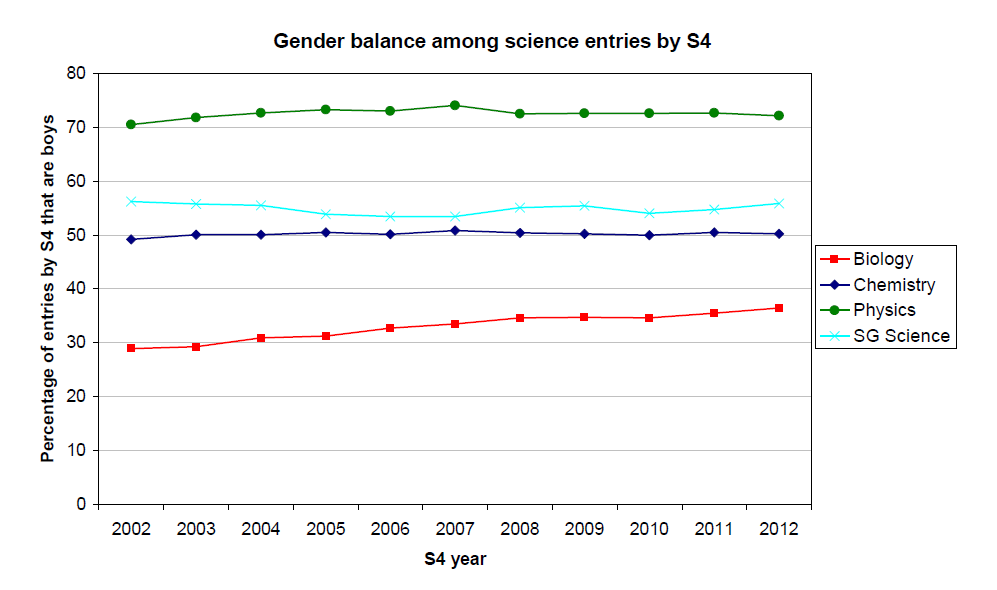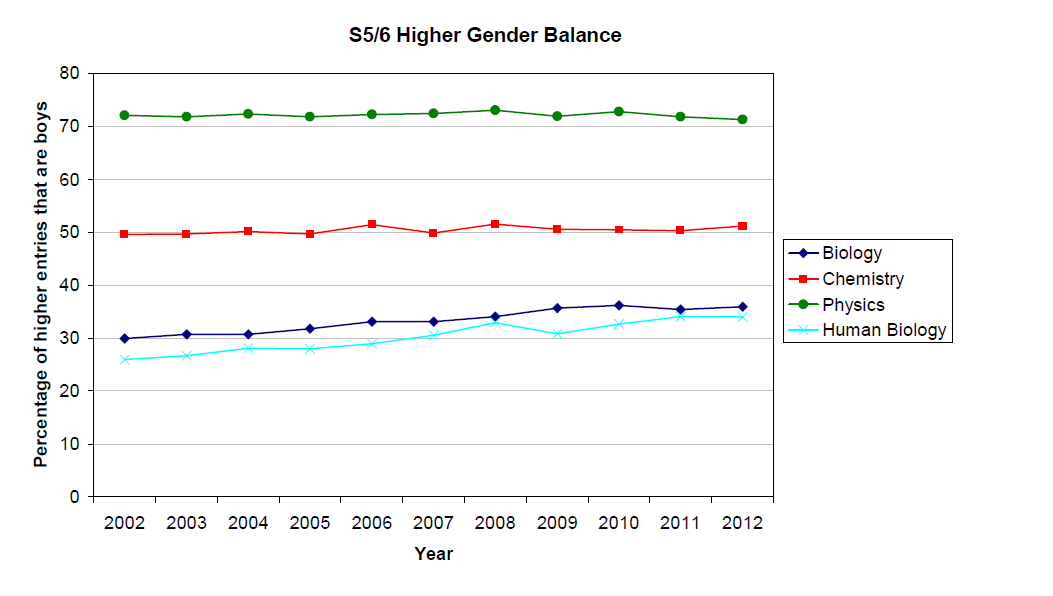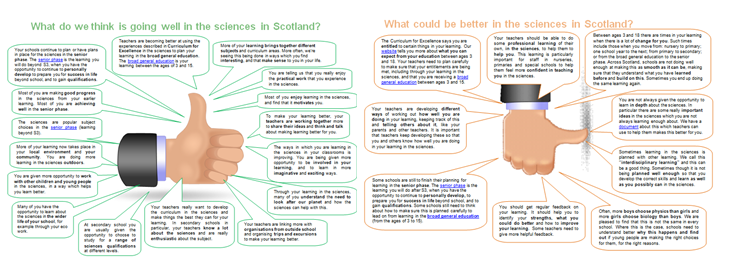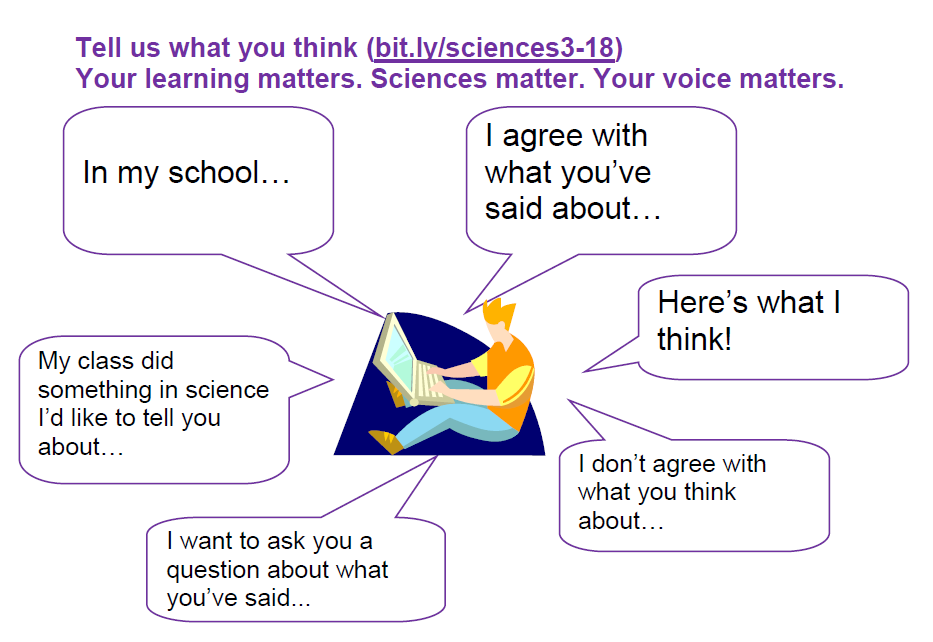As you might expect from an analysis and evaluation of the sciences 3-18 in Scotland, practical work and its role in the sciences is discussed.
“Young people at S1 and S2 frequently report enjoying practical work which they have experienced in their learning in the sciences…At S1 and S2 young people generally have plenty of opportunity to carry out practical work allowing them to develop a range of practical technique and investigation skills often within relevant and real-life contexts. They often cite this aspect of their learning as one of the main reasons they enjoy science.”
 “Young people at secondary school are developing practical investigation and inquiry skills within a range of relevant and real-life contexts. They can generally work collaboratively to plan fair tests, make a valid hypothesis, collect appropriate evidence, observe, measure accurately, estimate, record results in an appropriate format, interpret and evaluate findings and present them in a way of their choosing. They are often able to link two variables to determine relationships. A strong feature of practical work is young people’s ability to manipulate and name scientific equipment confidently, apply safety measures and take necessary actions to control risk and hazards. Many are not yet skilled at identifying the limitations of practical technique and scientific equipment and suggesting improvements to experimental work or investigation.”
“Young people at secondary school are developing practical investigation and inquiry skills within a range of relevant and real-life contexts. They can generally work collaboratively to plan fair tests, make a valid hypothesis, collect appropriate evidence, observe, measure accurately, estimate, record results in an appropriate format, interpret and evaluate findings and present them in a way of their choosing. They are often able to link two variables to determine relationships. A strong feature of practical work is young people’s ability to manipulate and name scientific equipment confidently, apply safety measures and take necessary actions to control risk and hazards. Many are not yet skilled at identifying the limitations of practical technique and scientific equipment and suggesting improvements to experimental work or investigation.”
In the report we have identified some good practice. Examples 13, 19, 24, 27 and 32 illustrate practice taking place in our pre-school centres and schools, and are particularly relevant to this discussion.
What are your experiences of practical work in the sciences? Whether you are a child, young person, practitioner or parents, join in the discussion!









